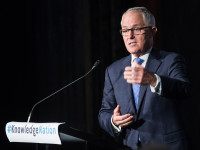If all TPP countries implemented similarly strong privacy protections, there would be little need to consider alternative mechanisms to enhance public confidence in their privacy through additional legal safeguards. However, the Trouble with the TPP is that it actually weakens privacy protections by treating voluntary undertakings as equivalent to comprehensive privacy laws (prior posts include Day 1: US Blocks Balancing Provisions, Day 2: Locking in Digital Locks, Day 3: Copyright Term Extension, Day 4: Copyright Notice and Takedown Rules, Day 5: Rights Holders “Shall” vs. Users “May”, Day 6: Price of Entry, Day 7: Patent Term Extensions, Day 8: Locking in Biologics Protection, Day 9: Limits on Medical Devices and Pharma Data Collection, Day 10: Criminalization of Trade Secret Law, Day 11: Weak Privacy Standards). The TPP goes further in harming privacy, however, by restricting the use of data localization requirements that might otherwise be used to provide privacy protection.
Data localization has emerged as an increasingly popular legal method for providing some additional assurances about the privacy protection for personal information. Although heavily criticized by those who fear that it harms the free flow of information, requirements that personal information be stored within the local jurisdiction is an unsurprising reaction to concerns about the lost privacy protections if the data is stored elsewhere. Data localization requirements are popping up around the world with European requirements in countries such as Germany, Russia, and Greece; Asian requirements in Taiwan, Vietnam, and Malaysia; Australian requirements for health records, and Latin America requirements in Brazil. Canada has not been immune to the rules either with both British Columbia and Nova Scotia creating localization requirements for government data.
Read more ›











